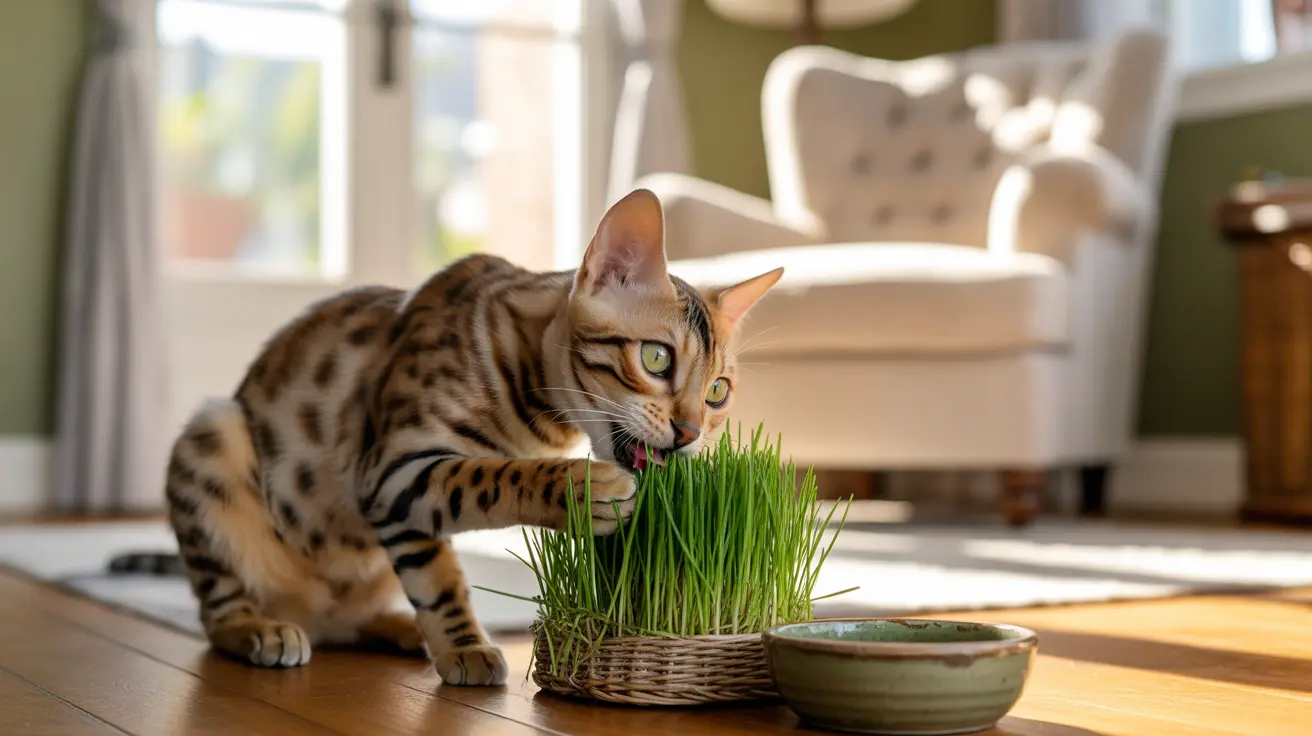If you've ever wondered why cats are drawn to nibbling on grass, you're not alone. Cat grass benefits extend far beyond a simple snacking preference – it's actually a powerful supplement that can enhance your feline friend's health and well-being in numerous ways.
As a natural addition to your cat's environment, cat grass provides essential nutrients, aids in digestion, and offers behavioral enrichment, especially for indoor cats. Let's explore the remarkable advantages of adding this safe, healthy green treat to your cat's life.
Essential Nutritional Value of Cat Grass
Cat grass packs a powerful nutritional punch, containing vital vitamins and minerals that support your cat's overall health. Rich in vitamins A, B-complex, C, E, and K, this natural supplement helps maintain your cat's immune system, skin health, and cellular function.
Perhaps most notably, cat grass is an excellent source of folic acid (vitamin B9), which plays a crucial role in oxygen transportation and red blood cell production. The chlorophyll content not only gives the grass its vibrant green color but also acts as a natural breath freshener.
Digestive Health and Natural Hairball Prevention
One of the most significant cat grass benefits is its positive impact on digestive health. The natural fiber content helps maintain regular digestion and can prevent constipation, particularly beneficial for indoor cats who may have less active lifestyles.
Cat grass acts as a natural hairball remedy by helping cats either pass ingested hair through their digestive system or safely regurgitate it before it can form problematic hairballs. This process is entirely natural and can prevent more serious digestive issues down the line.
Environmental Enrichment and Behavioral Benefits
For indoor cats, access to cat grass provides crucial environmental enrichment. It satisfies their natural instinct to forage and offers a safe alternative to potentially toxic houseplants. This natural grazing behavior can help reduce stress and prevent destructive chewing habits.
The presence of cat grass can also help create a more stimulating indoor environment, encouraging natural behaviors and providing mental stimulation that's essential for your cat's psychological well-being.
Growing and Maintaining Cat Grass at Home
Growing cat grass at home is surprisingly simple and cost-effective. Most varieties, including wheat, barley, oat, and rye grass, can be grown year-round in small containers with basic potting soil and indirect sunlight. The grass typically reaches a suitable height for consumption within 7-10 days.
To maintain optimal freshness and nutritional value, replace your cat grass every two weeks. If multiple cats share your household, consider growing several patches to prevent competition and ensure everyone has access to this healthy treat.
Safety Guidelines and Best Practices
While cat grass is generally safe, it's important to remember that it's a supplement, not a meal replacement. Monitor your cat's consumption and ensure it doesn't exceed 10% of their daily caloric intake. If you notice excessive vomiting or unusual behavior, consult your veterinarian.
Always choose cat grass specifically grown for pet consumption, as lawn grass may contain harmful pesticides or chemicals. Keep the grass fresh and clean, and remove any yellowed or wilted portions promptly.
Frequently Asked Questions
Why do cats benefit from eating cat grass, and is it safe for them?
Cat grass is completely safe for cats and provides numerous benefits, including essential vitamins and minerals, digestive support, and hairball prevention. It's a natural way to support your cat's health and satisfy their instinctual grazing behavior.
How often should I replace cat grass to ensure it remains nutritious for my cat?
Replace cat grass every two weeks to maintain optimal freshness and nutritional content. Regular replacement ensures your cat receives maximum benefits and prevents the grass from becoming wilted or contaminated.
What are the health benefits of cat grass, and does it help with hairballs?
Cat grass offers multiple health benefits, including digestive support, vitamin supplementation, and hairball prevention. The fiber content helps cats either pass hairballs naturally or safely regurgitate them before they become problematic.
Can cat grass be used as a substitute for regular cat food, or is it a supplement?
Cat grass should only be used as a supplement to a complete and balanced cat food diet. While beneficial, it cannot replace regular cat food as cats are obligate carnivores who require meat-based protein for survival.
How do I grow cat grass at home, and what types of grass are best for my cat?
Cat grass can be easily grown at home using wheat, barley, oat, or rye grass seeds. Plant the seeds in a shallow container with potting soil, keep them moist, and provide indirect sunlight. Oat grass is often considered most palatable for cats.






